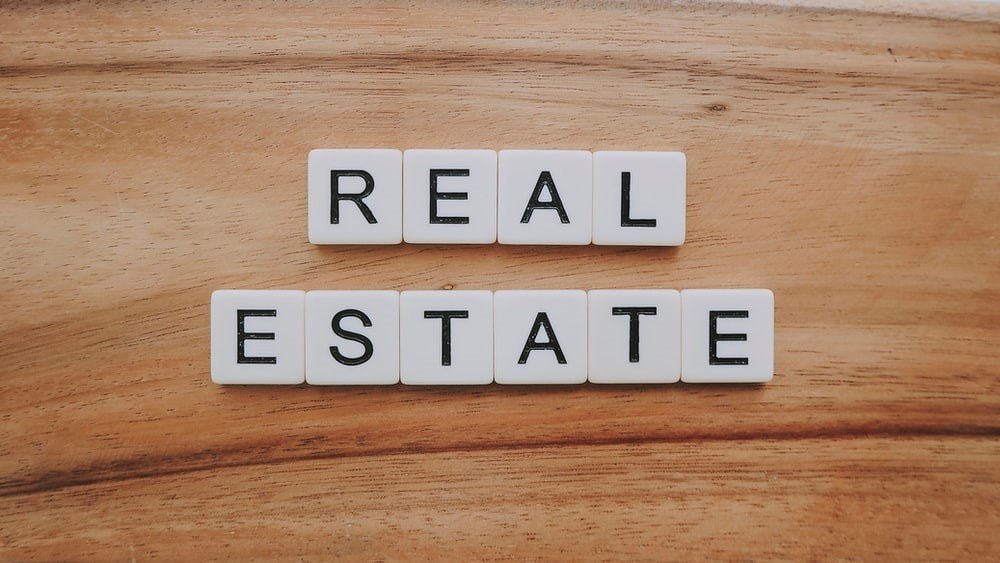There is no shortage of books, podcasts, and educational products touting the notion that getting into the real estate business is a good way to make money. It is true that there is potential in making money from investing in real estate. However, there is likewise a lot of potential in losing money from investing in real estate. Just because it has worked well for a number of people does not mean that the same will necessarily hold true for you. Hopefully that would be the case. However, because investing in real estate holds so much risk, it is hard to recommend that as financially sound route for everyone. In fact, in my opinion, there are a lot more arguments of why not to invest in real estate than why one should invest in real estate.

The Risks of Real Estate Investment
One top reason to not invest in real estate is that purchasing real estate property usually means paying more money than you can likely pay in full. That means that you will need to take out a massive loan known as a mortgage.
Instead of your money growing over time, you will pay interest on your throughout the life of the loan. In fact, it is not be uncommon for the amount you pay off over the life of the loan will almost double the original amount of the loan.
You can cut down on interest payments by prepaying the loan. However, it will take a lot of prepayments to notice a significant dent in the principle of the loan. After all, most of the money towards the beginning of your payment period goes towards paying off interest rather than principal.
Also, you also want to make sure you make sure that you ask your mortgage company the correct way of making extra principal payments towards your loan. After all, doing this the wrong way may simply mean you pay your scheduled payments in advance. The latter would do nothing to prepay the principal of your loan.
However, even if you had enough money to pay the home in full and avoid mortgage interest, you still have other liabilities that you cannot get rid unless you sell the home. These includes real estate taxes, home insurance, and property maintenance.
Thus, when you buy a home, you want to make sure that you account for all of these expenses. You also want to make sure that purchasing a home make financial sense at any particular point. After all, renting sometimes makes more sense than owning real estate.

Why Not to Invest in Live-In Real Estate
One reason why not to invest in real estate property that you are going to live-in is that there are a number of things that can go wrong. It is possible that at some point during the life of the loan you are not able to make your payments because of a totally unexpected circumstance. This could be due to a loss of a job, an illness, or some other tragedy. Unless you have a strong financial reserve to keep you from falling behind on home payments, any of these events can lead to the loss of your home.
Worst of all, any such a financial mishap will have a long-term effect on your finances. For one, it will likely negatively affect your credit score. As such, it could make it more difficult for you to secure future loans, or even a job or a home to rent for almost the next decade. After all, all of these things depend on your credit score.

Why Not to Invest in Rental Real Estate
A reason why you should not invest in rental real estate property is that it is even riskier than buying real estate property in which you will live. For instance, you might not be able to find a tenant to rent you property for a number of months. Since you are theoretically relying on paying this property using the money earned by reselling or renting this property, this period of vacancy will have a big negative impact on your financial plan.
Even if you rent the property, you might get very bad tenants that do not pay their rent. Therefore, you have to go through the legal process of evicting them. And, if they decide to trash the property on their way out, you need to repair the property in order to be able to put it up for rent again.
On the other hand, if your goal is to resell the property, it oftentimes takes a number of months and even years to sell a property. During this time, you will have to rely on your own cash reserves to pay all expenses associated with the property. In other words, you will be losing money instead of making money. Of course, you might be able to attract customers quicker by lowering the rent or sale price. However, this might mean that you have to cut your profits or even take a loss.

Reducing Your Risk in Real Estate Investment
A way to greatly lower your losses by buying the home outright, without getting a mortgage. While few people can afford to do this, it greatly reduces the monthly home expenses. Of course, you would still need to worry about real estate taxes, home insurance, and maintenance costs.
Something you can do is to ensure that you have a very strong emergency fund that can take care of missed rental and tax payments even for a number of years. You might have to take work very hard, and take a number of years to achieve this. But it will definitely the give you peace of mind if you decide to become invest in real estate.

Why Not in Index Funds vs Real Estate?
A much safer and less stressful investment than real estate investment for most people are index funds. Examples of index funds are passively managed mutual funds and exchange traded funds (ETFs). No doubt, investing in the stock market can also lead to loses. However, you do not risk nearly as much as when you invest in real estate. Also, it is definitely a more hands-off approach to investing.
For one thing, index fund investment does not require you to go into debt. You only invest what you can and want to invest at any given moment, according to the minimums or prices of the product you are interested in. This is very different from investing in real estate, which most likely will require you to get into debt and pay interest on that debt.
Even though you might lose money on your investment, chances are that if you leave it invested over the long term it will eventually go up in value again. Even in the worst-case scenario, you will lose all of your money. But you will never owe more money that what you originally invested.
In fact, the chances of losing all of your money is almost nonexistent with index funds since by their nature you are purchasing a combination of many different companies. This is because in order for you to lose all your money, all the companies in your index fund would have to go bankrupt. This is very unlikely. It is made even more unlikely by the fact that the companies that are doing poorly in your index fund will likely be replaced for a better performing company before the companies go into bankruptcy.

Simultaneous Investment in Real Estate and Index Funds
When starting investing and deciding whether to invest in real estate vs index funds, it might make sense to invest in both simultaneously. Of course, you will nonetheless need to keep an emergency funds with sufficient liquid assets to offset the many risks of investing in real estate.
One of these things is that you want to put yourself in a position where you can invest your money long term rather than take it out for fear that your livelihood depends on it. That latter is something you would likely need to do if your emergency fund is not able to cover for an unforeseen event.
Your emergency savings should be sufficient to covers many months of expenses. Even a year of expenses would not be unreasonable.
And it goes without saying that you should never keep your emergency fund in the stock market as you need that money to be available to you quickly at all time. After all, it is possible for the stock market to take a plunge just when you experience an emergency. You would not want your emergency funds to disappear at the moment you need them most.
Finally, if you would like to invest in real estate without assuming all the extra risk, you can invest in real estate investment trusts (REITs). The entry threshold to these is much less. Additionally, you can also sleep better at night knowing that you don’t have to worry about finding tenants, property maintenance, or getting into debt.
You might be interested in: It Is Wise to Pay Off Your Mortgage Early

Conclusion
Hopefully this post has given you some perspective into why investing in real estate should not be your first investment choice. Compared to investing in index funds, there are just a lot more risk involved in investing real estate.
Sure, it is easy to get persuaded into investing in real estate by a few people who have been incredibly lucky with real estate. And it is for sure feels great to have an investment in something which you have a strong physical and emotional attachment.
However, chances are most people will experience hardships during the course of investing in real estate. This in turn can have a significant impact on your life unlike other type of investments because it can impact your credit score, which in turns has many consequences. These include difficulty getting loans, getting a job, or even finding a place to rent.
Because of the many risks involved in investing in real estate, it is imperative to have a strong emergency fund and a plan of how to deal with periods of losses. Take the time to build up your financial foundation and financial risk tolerance. And be prepared to attack your mortgage as quickly as possible.
Only when you have done this, might it be reasonable to consider investing in real estate. But know that there are other less risky ways of building your wealth such as investing in index funds.

